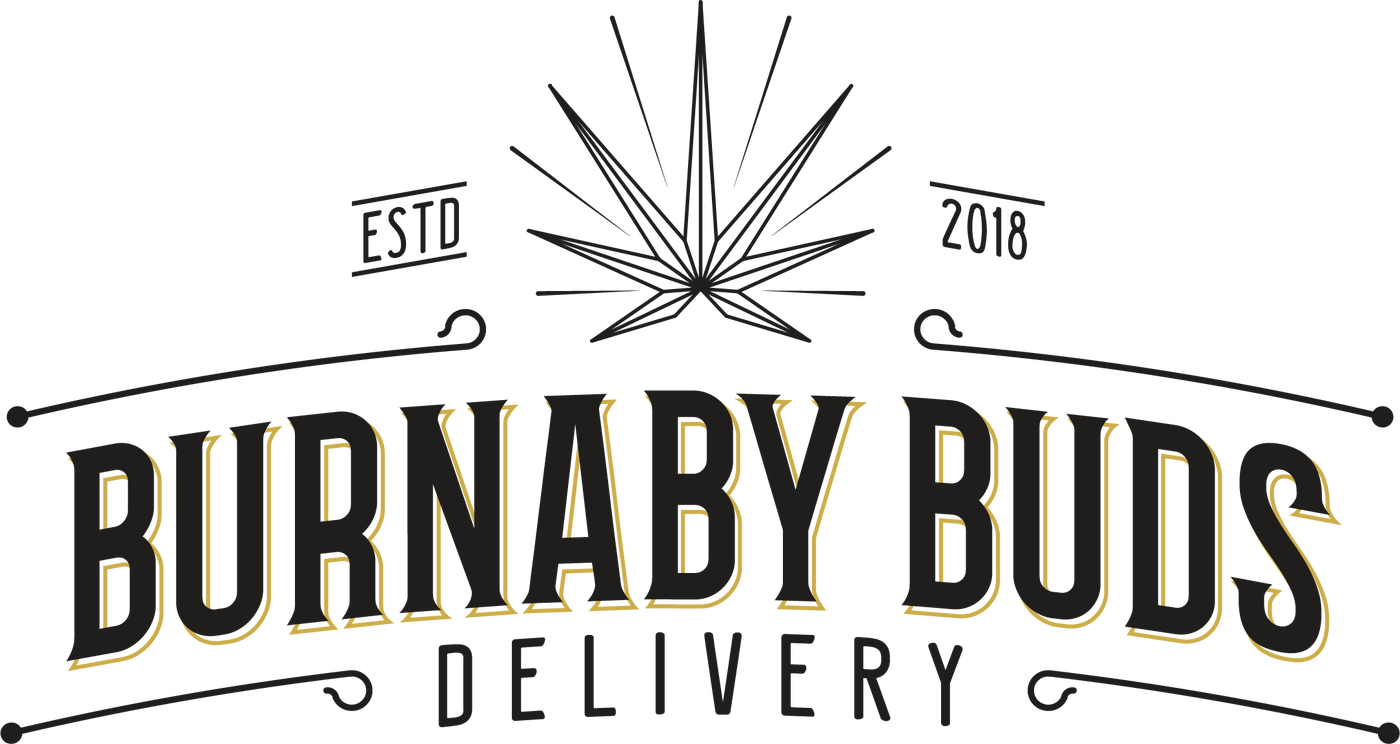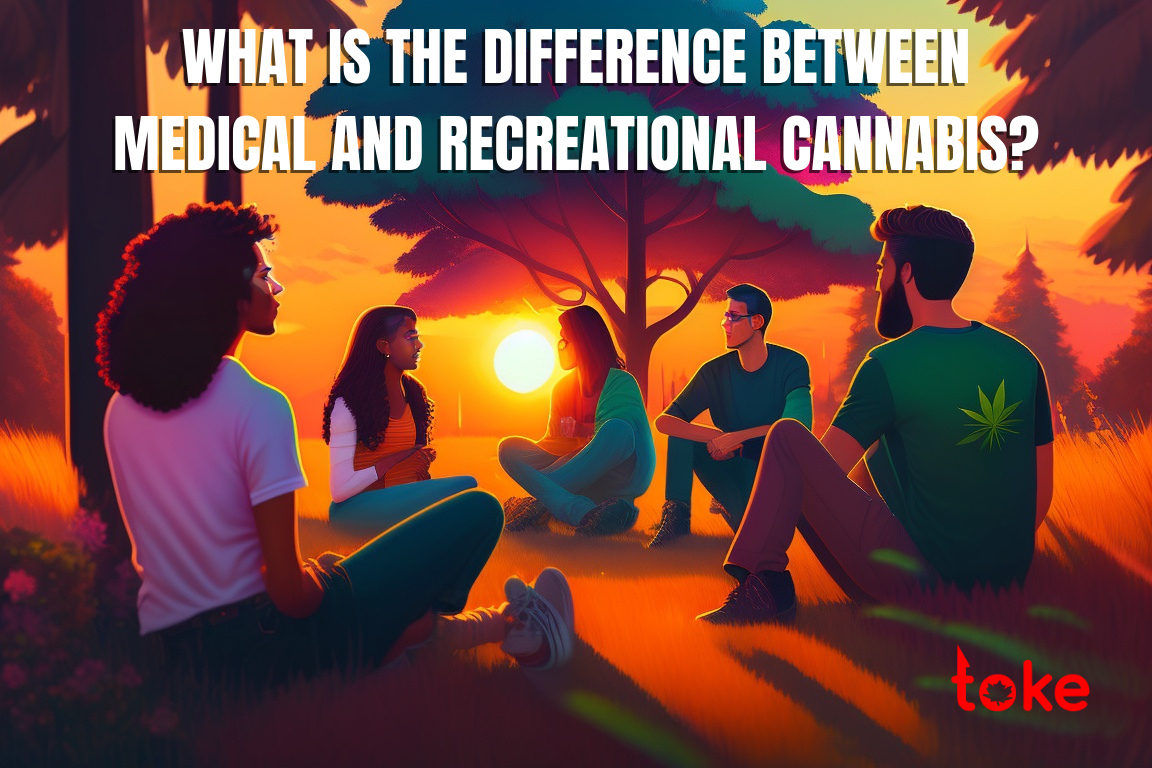Articles
What Is The Difference Between Medical and Recreational Cannabis?
Introduction
Cannabis is a plant that has been used for recreational and medicinal purposes for centuries. With the recent legalization of cannabis, many people are curious about the difference between medical and recreational cannabis use. In this article, we will explore the definitions, regulations, benefits, and drawbacks of both types of cannabis.
What is Cannabis?
Cannabis is a plant that contains over 100 chemical compounds called cannabinoids. The most well-known cannabinoids are tetrahydrocannabinol (THC) and cannabidiol (CBD). THC is the psychoactive compound that provides the “high” associated with cannabis use. CBD does not have psychoactive effects and is often used for medicinal purposes.
Brief History of Cannabis Use
Cannabis has been used for medicinal and recreational purposes for thousands of years. Ancient Chinese texts mention using cannabis for pain relief in 2,700 BCE. In the United States, cannabis was legal and widely prescribed for medical conditions until the early 20th century. Cannabis was then criminalized, and it wasn’t until the late 1990s that states began legalizing medical cannabis. Recreational cannabis legalization has been more recent, with the first state legalizing recreational use in 2012.
Why Has Cannabis Been Legalized?
The legalization of cannabis has been driven by a variety of factors, such as changing public attitudes, increased scientific research into cannabis, and the potential economic benefits of legalization. Advocates of cannabis legalization argue that it can provide relief for medical conditions, reduce criminal activity, and generate tax revenue.
Legalization of Medical and Recreational Cannabis
Medical Cannabis
Definition
Medical cannabis refers to the use of cannabis for medicinal purposes. It typically uses strains of cannabis that are high in CBD and low in THC.
What is Medical Cannabis?
Medical cannabis is used to alleviate symptoms of various medical conditions, such as chronic pain, multiple sclerosis, and epilepsy. CBD is often used for these purposes because it does not produce the psychoactive effects associated with THC.
Conditions That Can Be Treated with Medical Cannabis
Medical cannabis can be used to treat a wide range of conditions, such as:
- Chronic pain
- Multiple sclerosis
- Epilepsy
- Crohn’s disease
- PTSD
- Cancer-related symptoms such as nausea and pain
Legalization
Medical cannabis is legal in over 30 states in the US. The legality of medical cannabis varies by country, with some European countries and Canada also legalizing it.
The Process of Obtaining Medical Cannabis
To obtain medical cannabis, patients must have a qualifying medical condition and obtain a recommendation or prescription from a qualified medical professional. Patients can then purchase medical cannabis from a licensed dispensary.
Medical Cannabis Prescription vs. Recommendation
A medical cannabis prescription is a written prescription from a doctor that allows a patient to legally obtain cannabis. Medical cannabis recommendations are less formal and typically written by a doctor or nurse practitioner. In some states, recommendations are enough to obtain medical cannabis.
Regulation
Regulations for medical cannabis usage vary by state and country. However, common regulations include:
- Age requirements for patients and purchasers
- Limits on possession and consumption
- Requirements for licensed dispensaries
- Restrictions on driving under the influence of cannabis
Quality Control and Safety Measures
Medical cannabis is subject to quality control and safety measures to ensure that it is safe for consumption. These measures can include testing for contaminants, pesticides, and potency.
Why Regulation Is Important
Regulation of medical cannabis is important to ensure safety for patients and prevent abuse of the drug. Regulation also helps to reduce the stigma associated with cannabis use.
Recreational Cannabis
Definition
Recreational cannabis refers to the use of cannabis for non-medical purposes. It typically uses strains of cannabis that are high in THC and may also contain CBD.
What is Recreational Cannabis?
Recreational cannabis is used for the psychoactive effects of THC, which can produce feelings of relaxation, euphoria, and altered perception.
The Effects of Recreational Cannabis Use
Recreational cannabis use can have a range of effects on the body and mind, including:
- Increased appetite
- Decreased anxiety
- Pain relief
- Impaired coordination
- Slowed reaction time
Legalization
Recreational cannabis is legal in 15 states in the US and several countries, including Canada, Uruguay, and some European countries.
The Process of Obtaining Recreational Cannabis
To obtain recreational cannabis, consumers must be of legal age and purchase it from a licensed dispensary or retailer.
Age and Usage Restrictions
Recreational cannabis usage is restricted to individuals over a certain age, typically 21 years old or older. There may also be restrictions on where and when cannabis can be consumed.
Regulation
Regulations for recreational cannabis usage vary by state and country. However, common regulations include:
- Age requirements for consumers
- Limits on possession and consumption
- Requirements for licensed dispensaries and retailers
- Restrictions on smoking in public places
Quality Control and Safety Measures
Recreational cannabis is subject to quality control and safety measures to ensure that it is safe for consumption. These measures can include testing for contaminants, potency, and proper labeling and packaging.
Why Regulation Is Important
Regulation of recreational cannabis is important to ensure safety for consumers and prevent abuse of the drug. Regulation also helps to reduce the illegal market for cannabis.
Differences
The Purpose of Usage
The primary difference between medical and recreational cannabis is the purpose of usage. Medical cannabis is used for medicinal purposes, while recreational cannabis is used for non-medical purposes, typically for the psychoactive effects of THC.
The Legality of Usage
Medical cannabis is legal in more states and countries than recreational cannabis. Recreational cannabis is only legal in a handful of states in the US and several countries.
The Regulations for Usage
The regulations for medical and recreational cannabis usage vary by state and country. However, medical cannabis is typically subject to stricter regulations than recreational cannabis usage.
The Cost of Usage
Medical cannabis can be more expensive than recreational cannabis due to the additional costs of regulation and quality control.
The Potency of Cannabis
Medical cannabis strains are typically higher in CBD and lower in THC than recreational cannabis strains, which are higher in THC and may also contain CBD.
The Method of Consumption
The method of consumption for medical and recreational cannabis is generally the same, although medical cannabis may be more commonly consumed through tinctures or edibles.
Benefits and Drawbacks
Medical Cannabis
Benefits of Medical Cannabis
- Relief from chronic pain
- Reduction of neuropathic pain
- Reduction of muscle spasms
- Improvement in sleep
- Reduction of anxiety and depression
Drawbacks of Medical Cannabis
- Side effects such as dizziness, headaches, and dry mouth
- Potential for abuse and addiction
- Possible adverse effects on mental health, such as an increased risk of psychosis
Recreational Cannabis
Benefits of Recreational Cannabis
- Enhanced creativity
- Increased appetite
- Improved mood
- Relaxation and stress relief
- Altered perception
Drawbacks of Recreational Cannabis
- Impaired coordination and reaction time
- Addiction potential
- Possible adverse effects on mental health, such as an increased risk of anxiety and psychosis
Summary
Overall, the primary differences between medical and recreational cannabis are the purpose of usage, legality, regulations, cost, potency, and method of consumption. Medical cannabis is primarily used for medicinal purposes, is legal in more states and countries than recreational cannabis, is subject to stricter regulation, may be more expensive than recreational cannabis, and is typically higher in CBD and lower in THC. Recreational cannabis is used for non-medical purposes, is only legal in a handful of states in the US and several countries, is subject to less strict regulation than medical cannabis, may be less expensive, is typically higher in THC and may also contain CBD, and has similar methods of consumption as medical cannabis.
FAQs
What is the difference between medical and recreational cannabis?
Medical cannabis is used for medicinal purposes, while recreational cannabis is used for non-medical purposes.
Why has cannabis been legalized?
Cannabis has been legalized due to changing public attitudes, increased scientific research, and potential economic benefits.
What conditions can be treated with medical cannabis?
Medical cannabis can be used to treat a range of conditions, such as chronic pain, multiple sclerosis, epilepsy, and Crohn’s disease.
Where is recreational cannabis legal?
Recreational cannabis is legal in 15 states in the US and several countries, including Canada, Uruguay, and some European countries.
What are the potential benefits of recreational cannabis?
Recreational cannabis can provide enhanced creativity, increased appetite, improved mood, relaxation, and altered perception.
What are the potential drawbacks of medical cannabis?
The potential drawbacks of medical cannabis include side effects such as dizziness and dry mouth, possible addiction, and potential adverse effects on mental health.
What are the potential drawbacks of recreational cannabis?
The potential drawbacks of recreational cannabis include impaired coordination and reaction time, addiction potential, and possible adverse effects on mental health.
** If you have any questions feel free to call us or text us at (778) 791-7063**
Buy weed online same day delivery in Burnaby, New Westminster, Coquitlam, Port Moody, SFU, Vancouver, Kitsilano, North Vancouver and Delta British Columbia at Burnaby Buds Delivery

